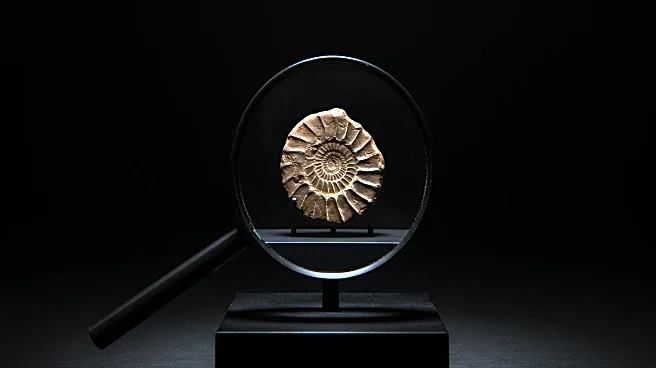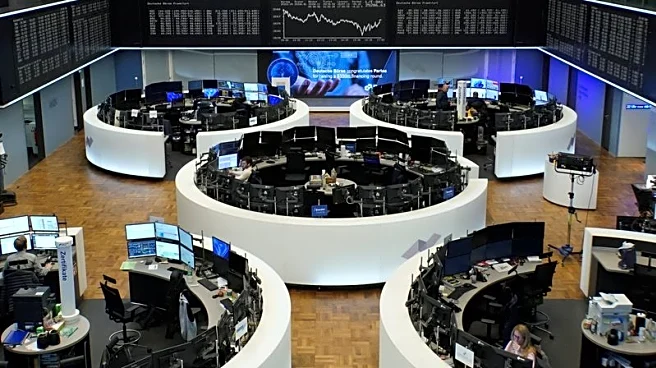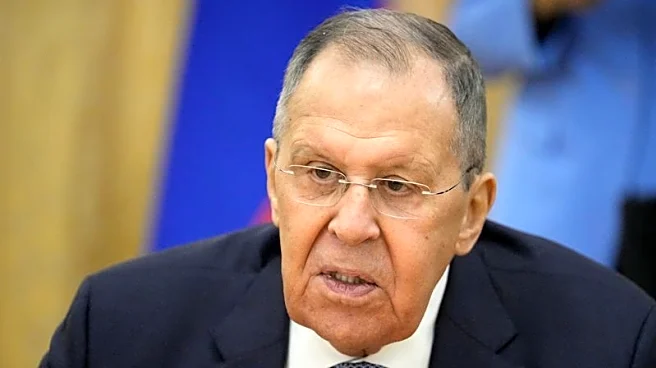What's Happening?
The trade of dinosaur fossils, particularly those of the Spinosaurus, has become a booming market, with fossils being sold online and at auctions for millions of dollars. A recent example includes a Stegosaurus skeleton, nicknamed 'Apex,' which sold for $44.6 million at a Sotheby’s auction in New York City. This trend has raised questions about the legality and ethics of fossil trading, especially concerning fossils from regions like Morocco's Kem Kem formation, where many Spinosaurus fossils originate. Experts have pointed out that many of these fossils may be illegally excavated and exported, despite laws in countries like Morocco that require permits for excavation and export. The fossil market has been further popularized by social media platforms like Instagram, which have become hubs for fossil dealers and collectors.
Why It's Important?
The burgeoning fossil trade has significant implications for cultural heritage and scientific research. While the sale of fossils can provide financial benefits to local communities involved in their excavation, it also poses risks to the preservation of cultural heritage and scientific integrity. The illegal excavation and export of fossils can lead to the loss of valuable scientific data and cultural artifacts. Moreover, the high prices fetched at auctions may encourage further illegal activities and exploitation of fossil-rich regions. This situation creates a complex ethical dilemma, balancing the economic benefits for local communities against the need to preserve and study these ancient relics for scientific and educational purposes.
What's Next?
As the fossil trade continues to grow, there may be increased scrutiny and regulation from governments and international bodies to ensure ethical sourcing and trading practices. Countries with rich fossil deposits, like Morocco, may strengthen their laws and enforcement to protect their cultural heritage. Additionally, there could be a push for more transparency in the fossil market, with buyers encouraged to verify the legality and ethical sourcing of fossils before purchase. The scientific community may also advocate for more fossils to remain in public institutions for research and education rather than entering private collections.
Beyond the Headlines
The fossil trade highlights broader issues of cultural heritage preservation and the ethical responsibilities of collectors and dealers. It raises questions about the ownership of natural history and the role of private collectors in preserving or potentially exploiting these resources. The situation also underscores the need for international cooperation in regulating the trade of cultural and scientific artifacts to prevent illegal activities and ensure that fossils are used for the benefit of all humanity.










